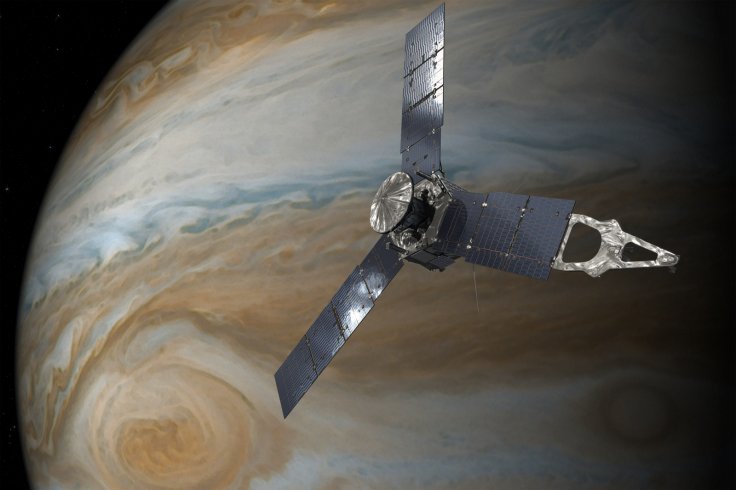
A detailed study of some old data helped NASA scientists to find that plumes of water are available on Europa, which is one of Jupiter's moon. The new discovery has astonished experts and many claims that Europa could be the best place to look for alien life.
Europa has long been considered the most potential place to find alien life, as it hosts a giant underground ocean. However, getting to it is almost impossible because of the thick crust of ice on the satellite's surface which would stop us from reaching the beneath of the ocean. Scientists believe that the Europa's ocean resides under an ice layer which is 10 to 15 miles thick, and it has an estimated depth of 40 to 100 miles.
The plume of water was discovered by NASA scientists when they analyzed the data collected by Nasa's Galileo spacecraft during a 1997 flyby. Scientists found that a bend in Europa's magnetic field is caused by a geyser gushing through its frozen crust from a subsurface ocean. The Galileo spacecraft apparently flew 124 miles (200km) above Europa's surface through the plume.
The study was headed by Michigan space physicist Xianzhe Jia, and the complete research report is now published in the journal Nature Astronomy.
Independent reported, a planetary scientist at the Johns Hopkins University Applied Physics Laboratory, Elizabeth Turtle said, "We know that Europa has a lot of the ingredients necessary for life, certainly for life as we know it. There's water. There's energy. There's some amount of carbon material. But the habitability of Europa is one of the big questions that we want to understand."
Turtle stated that the area where the plume is located is considered the most habitable part of Europa, as it is much warmer and is protected from radiation by the ice shell.
"And one of the really exciting things about detection of a plume is that that means there may be ways that the material from the ocean – which is likely the most habitable part of Europa because it's warmer and it's protected from the radiation environment by the ice shell – to come out above the ice shell. And that means we'd be able to sample it," told Elizabeth.









